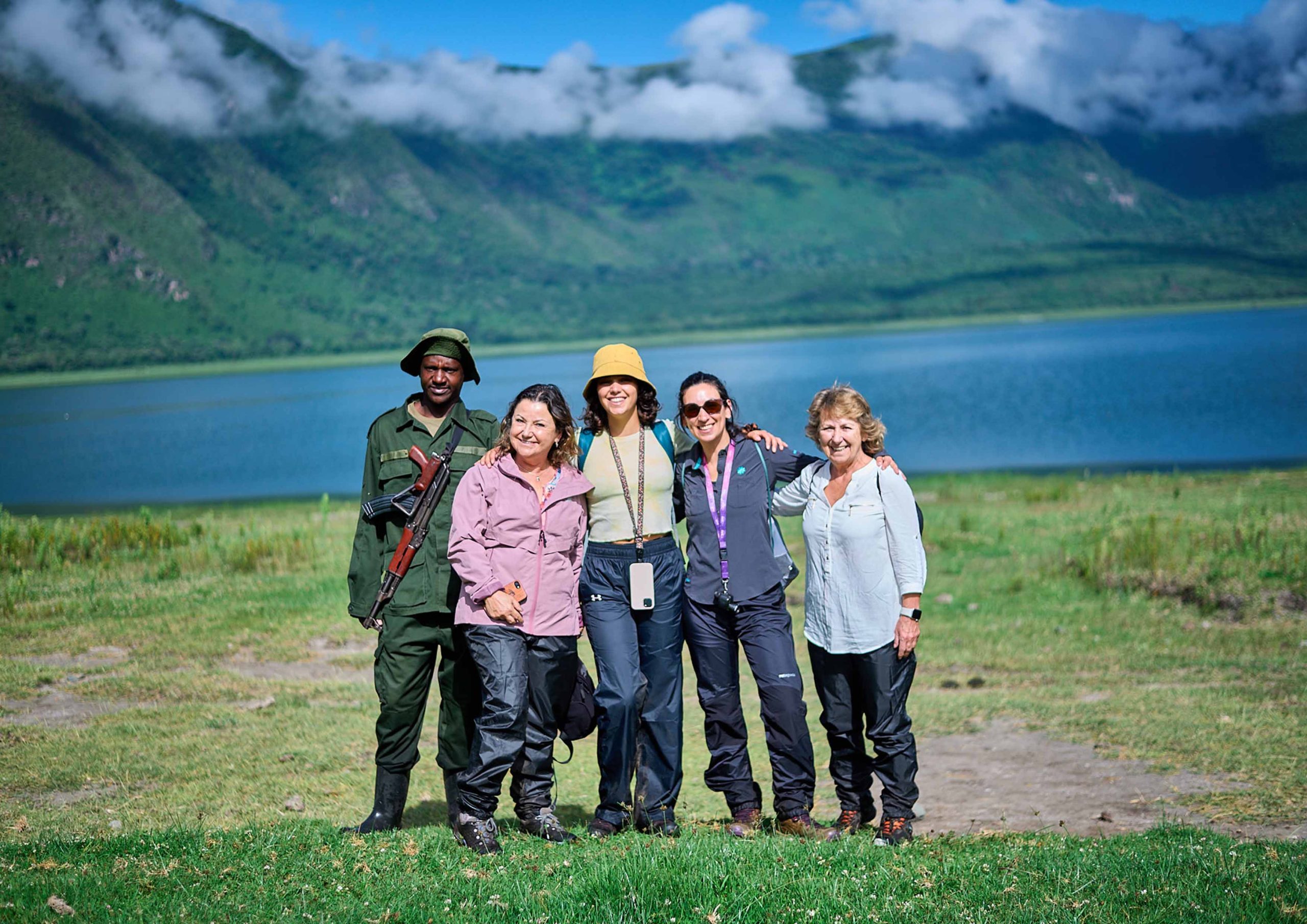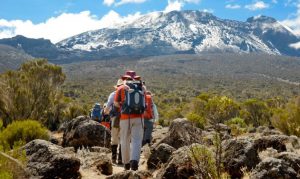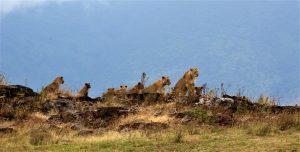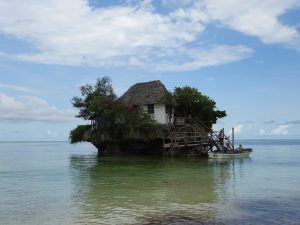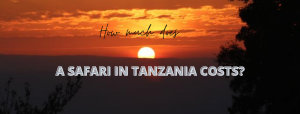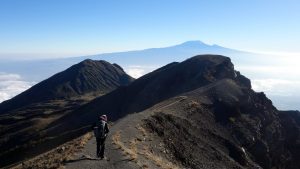What is the difference between a group and a private safari in Tanzania?
A safari in Tanzania offers a rich and diverse experience of Africa’s wildlife, from the Great Migration in the Serengeti to the breathtaking landscapes of Ngorongoro Crater. One of the most significant decisions travelers need to make when planning a safari is whether to join a group or opt for a private safari. While both offer opportunities for spotting the Big Five, witnessing dramatic wildlife interactions, and enjoying the beauty of the Tanzanian wilderness, there are key differences between group and private safaris that can influence the overall experience. These differences include the level of exclusivity, customization, cost, flexibility, and the dynamics of the trip.
Group Safaris: A Shared Adventure
A group safari is a more structured and communal form of travel. These trips are designed for multiple travelers who come together to share a vehicle, guide, and the overall experience of the safari. Group safaris are popular among budget-conscious travelers, solo adventurers looking for companionship, or small groups of friends who do not mind sharing the experience with others.
1. Cost and Affordability
One of the primary reasons travelers choose a group safari is the affordability. Since the costs of transportation, guiding, and sometimes accommodation are shared among a number of people, the overall cost per individual is significantly reduced. For many, this is a way to experience the wonder of Tanzania’s national parks and reserves without the need to invest heavily. Group safaris are often organized by tour companies that have fixed departure dates and itineraries, allowing participants to join without needing to plan much in advance.
While group safaris are cost-effective, the pricing structure can vary based on factors such as the level of luxury, the number of participants, and the duration of the trip. Budget group safaris typically involve larger groups, while mid-range or luxury group safaris may limit the number of participants to create a more intimate experience, but still, the shared aspect remains.
2. Fixed Itineraries
Group safaris operate on a pre-determined schedule. Tour operators set the itinerary, often including popular parks like Serengeti, Tarangire, and Ngorongoro Crater. While these itineraries cover many of the highlights that Tanzania has to offer, there is limited flexibility for detours or extended stays in particular areas. Participants follow a set route, and the timing of activities, such as game drives, is pre-arranged.
This structure can be advantageous for those who prefer not to handle the logistics of safari planning. Everything is arranged, from transportation between parks to accommodations, allowing travelers to focus solely on enjoying the experience. However, for those who prefer a more personal touch or wish to explore specific interests, such as bird watching or photography, the lack of customization in group safaris may feel restrictive.
3. Social Experience
For many, a group safari offers a chance to meet like-minded travelers from around the world. The shared experience of watching a lion hunt or observing elephants at a waterhole can foster a sense of camaraderie among participants. The social aspect of a group safari can make the trip more enjoyable for solo travelers or those who enjoy being part of a collective adventure.
However, the social nature of group safaris can also have its downsides. The group dynamic plays a significant role in shaping the experience. Some travelers may find themselves paired with people whose interests or personalities do not align with their own. For example, a wildlife photography enthusiast might feel frustrated if the rest of the group is more interested in moving quickly from one sighting to the next rather than taking the time to capture the perfect shot. Additionally, differing opinions on the pace of the safari, meal times, and even bathroom breaks can sometimes lead to minor inconveniences.
4. Sharing the Vehicle and Guide
In a group safari, participants share a safari vehicle and guide. Safari vehicles are typically equipped with pop-up roofs or open sides to enhance wildlife viewing, and depending on the tour, they may accommodate between 6 to 10 people. While this setup allows for a more affordable experience, it also means that the prime viewing spots within the vehicle might be limited. Travelers may need to rotate seats to ensure everyone gets a chance to enjoy unobstructed views during game drives.
Sharing a guide also means that the guide must cater to the interests of the entire group. In some cases, this can mean more general wildlife observations rather than a focus on specific species or behaviors. While professional guides strive to provide an engaging and informative experience for all, it can be challenging to balance the varied interests of multiple participants.
5. Larger Camps and Lodges
Group safaris often include stays in larger safari camps or lodges, where many other groups may also be staying. These accommodations can range from basic to luxurious, depending on the tour package, but the general atmosphere tends to be less intimate. With more travelers at the lodge, common areas such as dining rooms or lounge areas can feel busier, and the service, while usually of high quality, may be less personalized compared to smaller, more exclusive accommodations.
Private Safaris: Tailored Exclusivity
In contrast to group safaris, private safaris are custom-designed experiences that cater specifically to an individual traveler, couple, or private group. These safaris offer a high level of exclusivity and personalization, allowing travelers to craft their own itinerary, choose their accommodations, and tailor the entire safari experience to suit their interests and preferences.
1. Personalized Itineraries and Flexibility
One of the most significant advantages of a private safari is the ability to create a personalized itinerary. Travelers can work with a safari planner to decide which parks and reserves to visit, how long to stay in each location, and what activities to prioritize. Whether the goal is to witness the Great Migration in the Serengeti, explore the remote wilderness of Ruaha National Park, or focus on birding in Lake Manyara, a private safari offers the flexibility to pursue these interests without the constraints of a fixed schedule.
This customization extends to game drives as well. In a private safari, the guide is dedicated to the individual or group, allowing for more spontaneous decisions. If a herd of elephants is particularly captivating, there is no rush to move on to the next sighting. Conversely, if a specific area of the park is not yielding many wildlife sightings, the guide can suggest alternative routes or activities.
2. Exclusivity and Comfort
The exclusive nature of a private safari often translates to a higher level of comfort and service. Travelers have a private vehicle at their disposal, meaning that every seat is available for optimal wildlife viewing. There is no need to rotate seats or share space with strangers, allowing for a more relaxed and intimate experience.
Private safaris often include stays at smaller, more exclusive camps and lodges. These accommodations tend to offer more personalized service, with staff who can cater specifically to the needs and preferences of the guests. Meals may be tailored to dietary preferences, and the overall atmosphere is more serene and intimate. In some cases, travelers can even opt for exclusive-use camps, where they have the entire property to themselves.
3. A Tailored Guiding Experience
Having a private guide is one of the most significant differences between group and private safaris. A private guide is solely focused on the preferences and interests of the guests, which means that the safari experience can be tailored in real-time. For example, if a guest is particularly interested in observing predators, the guide can focus on areas of the park where lions, cheetahs, or leopards are more likely to be found. Alternatively, if the guests are interested in learning about the smaller details of the ecosystem, such as insects or plant life, the guide can shift their focus accordingly.
This tailored experience is particularly valuable for photographers. Private safaris allow photographers to take their time setting up shots, waiting for the perfect lighting or animal behavior without feeling rushed by the schedule or the needs of other travelers. The guide can also position the vehicle to ensure the best angles and views for photography.
4. Privacy and Personalized Group Dynamics
For families, couples, or small groups of friends, the privacy of a private safari can make the experience more enjoyable and relaxed. There is no need to compromise on preferences or schedules to accommodate others, and the group can focus on creating shared memories together. Whether celebrating a special occasion like a honeymoon or simply seeking a more intimate experience, a private safari allows for complete control over the pace and structure of the trip.
The absence of strangers in the group can also lead to a more harmonious experience. There are no concerns about differing travel styles, interests, or personalities clashing, which can sometimes be a concern in group safaris. Instead, the group can focus entirely on their own shared enjoyment of the experience.
5. Higher Cost for a Premium Experience
The personalized service, exclusivity, and flexibility of a private safari come at a higher cost compared to group safaris. Since all elements of the safari, from the guide to the vehicle to the accommodations, are dedicated solely to the private group, the overall price is considerably higher. However, many travelers find that the investment is worth it for the unique, tailored experience that a private safari provides.
The cost of a private safari can vary widely depending on the level of luxury, the choice of accommodations, and the length of the trip. High-end private safaris often include stays at some of Tanzania’s most luxurious lodges, private charter flights between parks, and exclusive-use camps, all of which contribute to the premium pricing. However, it is possible to plan a more mid-range private safari that still offers many of the benefits of exclusivity without the high-end price tag.
Choosing Between Group and Private Safaris
The decision between a group and private safari ultimately depends on the traveler’s priorities, preferences, and budget. Group safaris are ideal for those seeking a more affordable and social experience, where they can join other travelers on a shared adventure. The fixed itineraries and communal nature of group safaris provide structure and convenience, though they come with certain limitations in terms.

